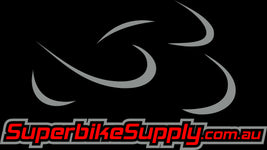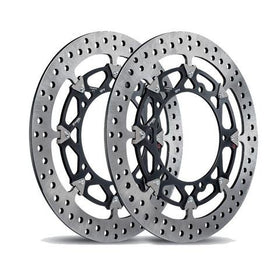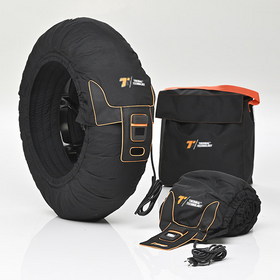Castrol React SRF Racing Brake Fluid 1L
CASTROL REACT SRF BRAKE FLUID
High performance brake fluid
The compressibility of Castrol React SRF Racing is very similar to that of current DOT 3 and DOT 4 fluids. It can therefore be filled into any braking system used in motor sport with the exception of those for which a mineral oil is prescribed. It gives a “hard pedal” feel.
APPLICATION
For all braking systems where conventional or polyglycol brake fluids are recommended in high performance vehicle and competition applications. Highly recommended for cars used for “Club and Track days”
FEATURES & BENEFITS
- Widely used in racing, from Formula One, sports cars, V8 Supercar and Grand Prix and Superbike motorcycles.
- The exceptionally high dry boiling point (higher than 300°C) makes Castrol React SRF Racing ideal for use under arduous braking conditions such as rallying or racing. It exceeds the boiling point requirements of DOT 5 brake fluids.
- Very high vapour lock point and has the additional advantage of sustaining high vapour lock point characteristics during its service life.
- It is miscible with all conventional fluids meeting the US Federal Standards FMVSS 116 DOT 3, DOT 4 and DOT 5.1, ISO 4925 and current SAE J1703. This means that changing the brake system to Castrol SRF is easy. Drain and flush out the conventional brake fluid with Castrol SRF then top up the system with Castrol React SRF Racing. Although Castrol React SRF Racing is miscible with conventional brake fluids, topping up Castrol React SRF Racing with conventional brake fluids will reduce the benefits of the product.
- It is compatible with seal rubber and metal materials used in brake systems using conventional polyglycol brake fluids.
- It is similar in viscosity to conventional brake fluids so is easy to bleed like conventional brake fluids.
SPECIFICATIONS
Castrol React SRF Racing is suitable for all disc and drum brake systems used in motorsport with the exception of those for which a mineral oil is prescribed. lt complies with the requirements of the following specification:
- US FMVSS 116 DOT 3 and DOT 4.
- SAE J1703.
- ISO 4925.
- Australian Standard 1960 Grade 3
TYPICAL CHARACTERISTICS
Density @ 15ºC 1.06
Dry Boiling Point 320ºC
Wet Boiling Point 270ºC
Viscosity @ 100ºC (cSt) 2.1
Viscosity @ -40ºC (cSt) 1200



